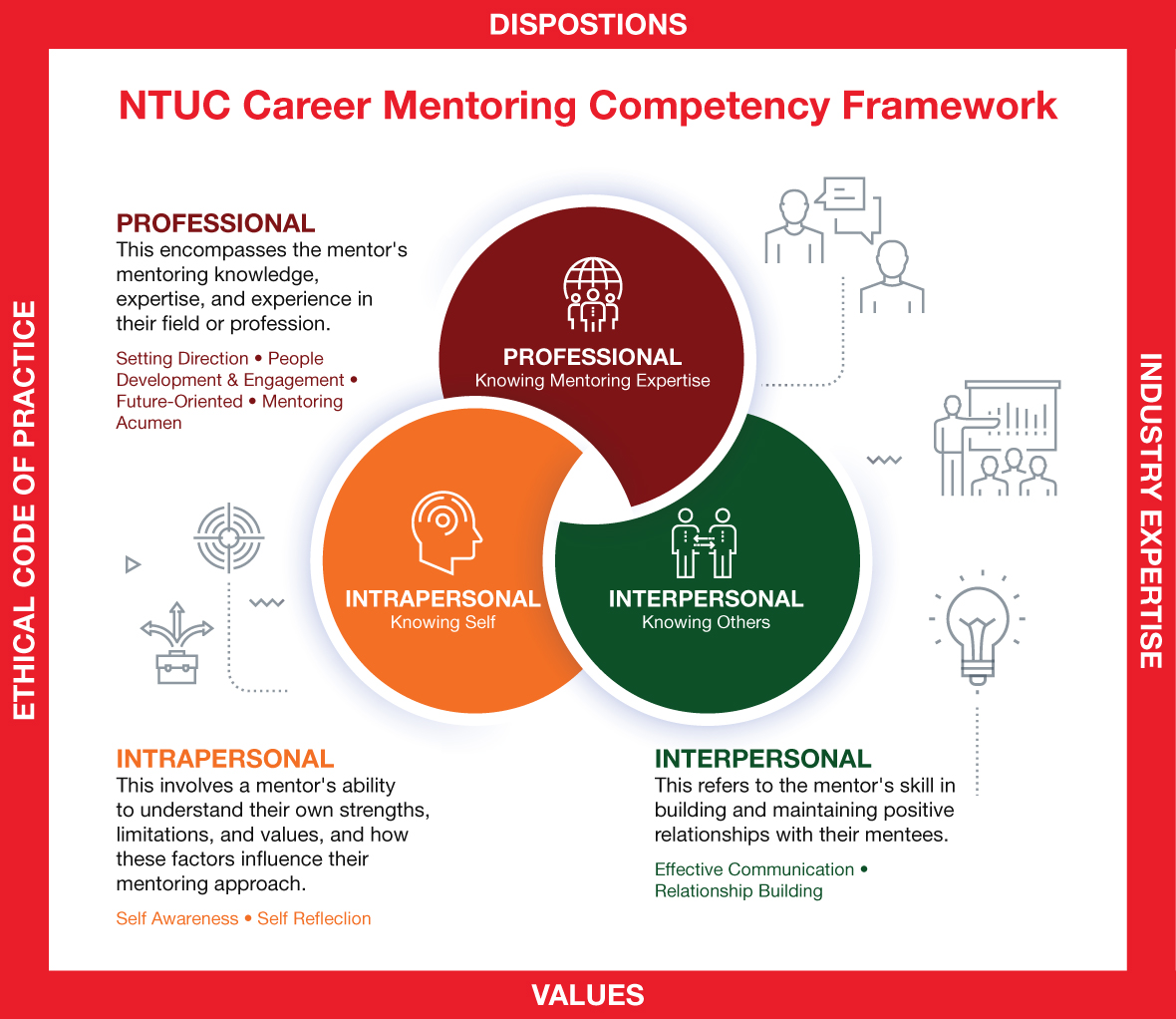NTUC is dedicated to fostering a robust, quality mentoring ecosystem. At the heart of this initiative is the NTUC Career Mentoring Competency Framework, which focuses on the professional development of our mentors to uphold the highest standards.
The NTUC Mentors Network's structured recognition and professional learning pathway is designed for Mentors to identify the courses necessary to help them achieve the next level of proficiency. By establishing consistent and recognised benchmarks for mentoring across various domains and industries, we hope to ensure that all mentorship programmes adhere to best practices and can deliver consistent and high-quality experiences.
The NTUC Career Mentoring Competency Framework comprises 3 core domains with 8 key competencies:

The Anchor
Surrounding these core domains is a robust anchor that includes Dispositions, Industry Expertise, Values, and an Ethical Code of Practice. These anchor elements provide a strong foundation, grounded in values, guided by strong industry experience and mentoring practices that are comprehensive and ethically sound.
1. Values
Values are the bedrock of the mentoring practice. Core values include caring, trustworthy, passionate, inclusive and agile. These values guide mentors in their interactions and decision-making processes, fostering a positive and supportive mentoring environment. By prioritizing these values, mentors can create a nurturing atmosphere that promotes learning and growth.
2. Dispositions
Dispositions refer to the inclinations and attitudes a mentor brings to their role. Key dispositions include open-mindedness, patience, proactivity, and reflectiveness. These attitudes are crucial for creating a supportive and productive learning environment.
3. Industry Expertise
Industry expertise involves having a deep understanding of the specific industry, including technical knowledge, regulatory understanding, and strategic insights. This expertise allows mentors to offer relevant and up-to-date guidance, ensuring that mentees receive industry-specific support.
4. Ethical Code of Practice
An ethical code of practice provides guidelines to ensure that mentors act responsibly and respond appropriately to ethical challenges. Key principles include confidentiality, non-discrimination, maintaining professional boundaries, and accountability. This ethical foundation ensures that mentoring relationships are conducted with integrity and respect.
Our Mentors Competency Framework includes a structured recognition pathway, guiding mentors from foundational skills to advanced expertise:
Recognition Level Mentor's Professional Learning Pathways Requirements
|
Level 1 |
|
|
Level 2 |
|
|
Level 3 |
|
|
Level 4 |
|
|
Level 5 |
|
* Mentors who have accumulated mentoring experience through volunteering in NTUC mentoring programmes or recognised partner mentoring organisations may be exempted from certain training requirements.
For more information or questions, reach out to us at ntucmentorship@ntuc.org.sg